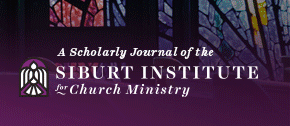Abstract
For many Christian traditions, participation in the liturgical year does not seem remarkable; in fact, it is second nature being the form, or liturgy, through which congregational members grew up practicing their faith. However, for those Christian traditions, like the Churches of Christ, who have avoided the liturgical year, the inclusion of liturgical practices is a substantial deviation in worship theology, practice, and comfort.
This article recounts one congregation’s journey through the liturgical calendar as a test case for a Doctor of Ministry project. The thesis questioned whether the introduction of the liturgical Christian calendar into the worship life of the Orient Street Church of Christ would help lead to the spiritual formation of its members. To test this thesis, the Orient Street congregation followed the holy day cycle of the liturgical Christian calendar. They were surveyed before entering the liturgical year and then again at the end. The two surveys were then compared to see if measurable spiritual growth had occurred. According to the surveys, growth did occur.
Creative Commons License

This work is licensed under a Creative Commons Attribution 4.0 License.
Recommended Citation
Horn, Wes
(2015)
"Churches of Christ, Spiritual Formation, and the Liturgical Christian Calendar,"
Discernment: Theology and the Practice of Ministry: Vol. 1:
Iss.
1, Article 4.
Available at:
https://digitalcommons.acu.edu/discernment/vol1/iss1/4
Included in
Biblical Studies Commons, Christianity Commons, Comparative Methodologies and Theories Commons, History of Christianity Commons, History of Religion Commons, Liturgy and Worship Commons, Practical Theology Commons

